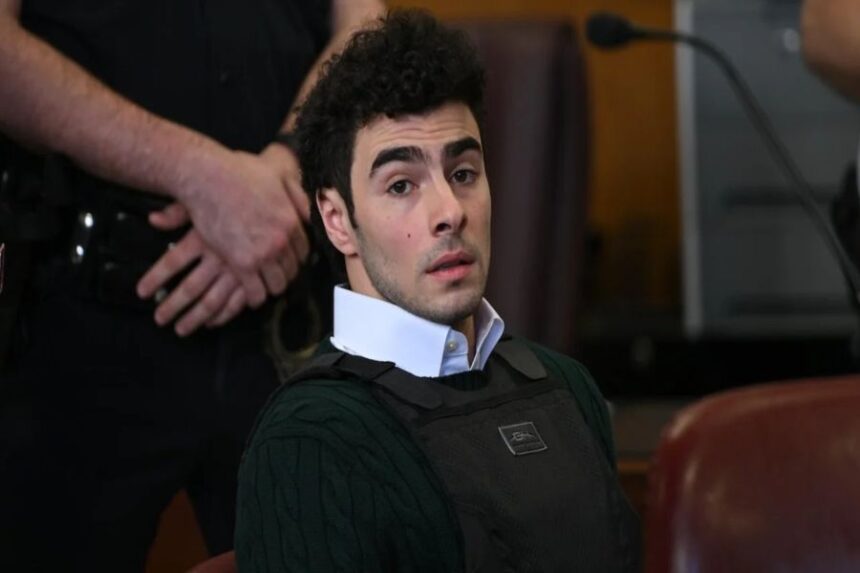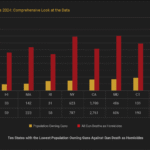In a case that has stirred national debate, Luigi Mangione, 26, pleaded not guilty on Friday to federal charges of murder and stalking in connection with the fatal shooting of UnitedHealthcare CEO Brian Thompson. The arraignment drew a dramatic scene outside the federal courthouse in Manhattan, where a crowd of supporters, protesters, and media gathered, reflecting the polarizing views surrounding the high-profile case.
Mangione, who faces both state and federal charges, was arrested in December 2024 after an intense manhunt that ended with his capture at a McDonald’s in Altoona, Pennsylvania. Authorities allege he ambushed Thompson outside a Midtown Manhattan hotel, shooting him in the back as the CEO made his way to an investors’ conference. Thompson, a husband and father of two, was pronounced dead at the scene.
Attorney General Pam Bondi has directed federal prosecutors to seek the death penalty, calling the act a “premeditated, cold-blooded assassination that shocked America.” However, the government’s swift pursuit of capital punishment has drawn criticism, even from prominent figures such as former Army intelligence analyst and whistleblower Chelsea Manning, who stood among those lining up outside the courthouse. Manning warned reporters that the rapid pace of proceedings risked undermining the integrity of the justice system, stating, “We don’t speed run justice.”
Supporters of Mangione voiced concerns that he is being unfairly targeted, with some labeling him a “political prisoner.” A truck circled the courthouse displaying digital messages that framed Mangione’s prosecution as a battle over his very life. Several attendees compared the alleged injustices in the healthcare system — citing UnitedHealthcare’s coverage denials — to forms of “legal murder,” suggesting that Mangione’s actions were a response to systemic wrongdoing rather than random violence.
“I view what UnitedHealthcare is doing as murder by denial,” said one woman, who declined to give her name but wore a black leather jacket and sunglasses. “If you deny a child with cancer care, that’s murder. Whether you do it with a gun or behind a screen, you’re killing someone.”
Judge Margaret Garnett, overseeing the case, issued a reminder through prosecutors to Attorney General Bondi that public commentary could jeopardize the fairness of the proceedings, underscoring the case’s already fraught atmosphere.
Inside the courtroom, Mangione appeared shackled and dressed in a tan and white prison uniform, a stark contrast to his previous hearing when he appeared in civilian clothing and a bulletproof vest. He was flanked by his defense attorneys, Marc Agnifilo and death penalty specialist Avraham Moskowitz, with Karen Friedman Agnifilo leading courtroom arguments. Mangione remained actively engaged throughout the hearing, conferring with his lawyers, taking notes, and listening intently to both the judge and the prosecution.
Complicating the case further, Mangione faces two separate trials — one at the state level and one federally. The prosecution prefers the state trial to proceed first, citing the gravity of the capital charges, while the defense argues constitutional concerns make the federal trial the logical first step. Judge Garnett signaled that the court would proceed independently until circumstances required reconsideration, aiming to set a trial date during the next conference scheduled for December 5, 2025. The actual trial is expected to begin in 2026.
Despite the heavy charges against him, Mangione appeared composed and even upbeat following the proceedings, exchanging smiles with supporters and making eye contact with those in the gallery as he exited under guard.
Meanwhile, Thompson’s family has largely stayed out of the spotlight, issuing a single statement after his death that celebrated his legacy: “Brian was an incredibly loving, generous, talented man who truly lived life to the fullest and touched so many lives. Most importantly, Brian was an incredibly loving father to our two sons and will be greatly missed.”
As the legal battle looms, the case has already evolved beyond a straightforward criminal proceeding, becoming a flashpoint for broader debates about healthcare ethics, the use of the death penalty, and the integrity of America’s justice system.




